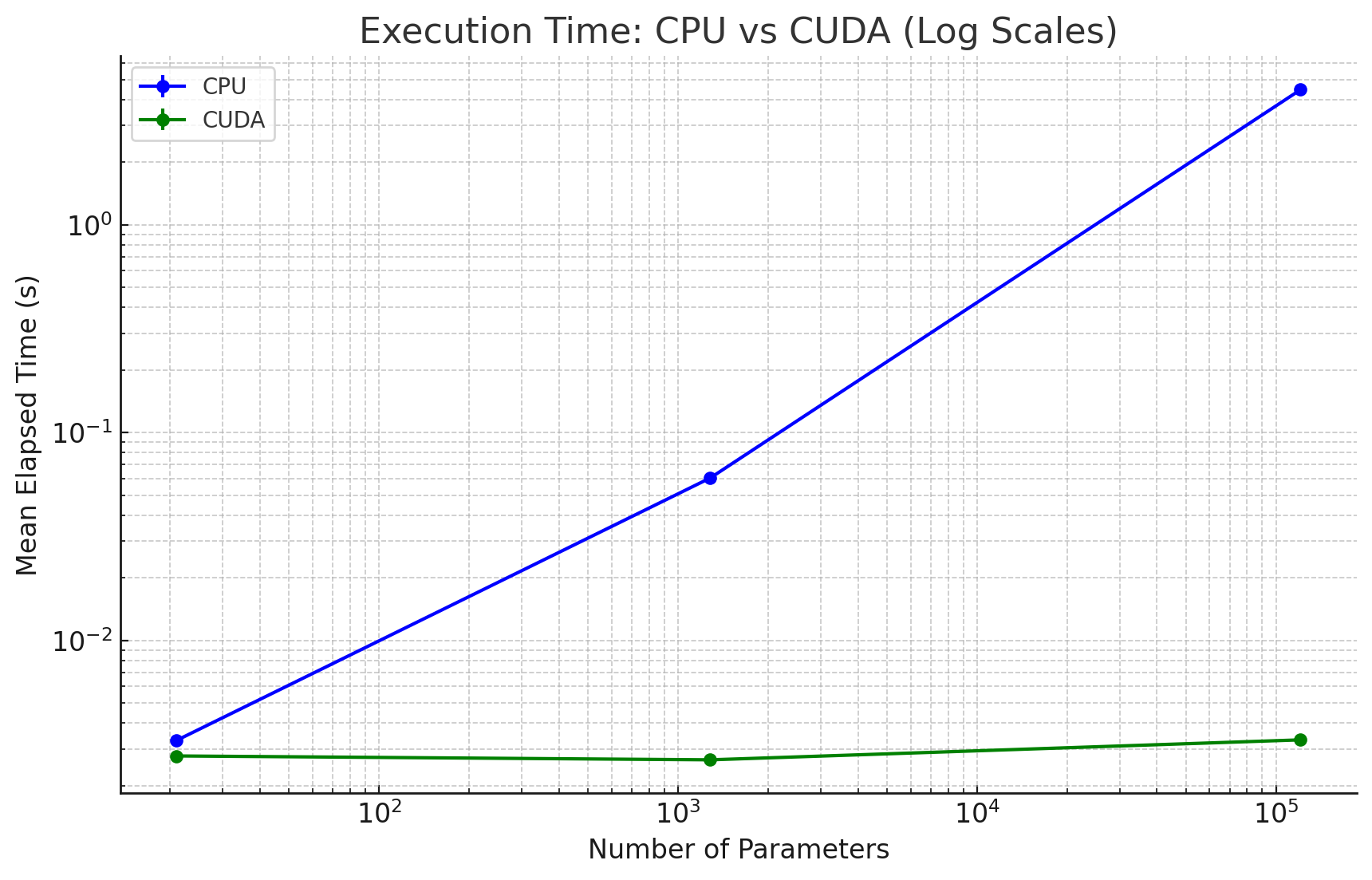Teaching myself basic CUDA by building GPU-accelerated tensor-based autodiff from the ground up, inspired by Andrej's micrograd.
No dependencies other than Python's standard library and CUDA.
To compile the CUDA kernels:
nvcc -shared -o liboperations.so micrograd_cuda/operations.cu -Xcompiler -fPICimport random
import time
from micrograd_cuda.mlp import MLP
from micrograd_cuda.tensor import Tensor
from micrograd_cuda.operations import Operations
# Model
model = MLP(100, [100, 100, 1])
epochs = 20
device = "cpu"
# Data
xs_batch = Tensor([[random.choice([-1, 1]) for _ in range(100)] for _ in range(10)]).T
ys_batch = Tensor([[random.choice([-1, 1])] for _ in range(10)]).T
# Move to device
model.to(device)
xs_batch.to(device)
ys_batch.to(device)
start = time.time()
for k in range(epochs):
# Forward pass
ypred = model(xs_batch)
diff = ypred - ys_batch
loss = (diff**2).sum()
# Backward pass
for p in model.parameters():
p.zero_grad()
loss.backward()
# Update
for p in model.parameters():
p.data = (-0.1 * p.grad + p).data_copy()
print(f"Elapsed: {time.time() - start:.2f} sec")
loss.to("cpu")
print(loss.data)The codebase is still WIP with some rough spots, especially around CUDA Tensor data manipulation and copying.
- Micrograd extension with basic 2D tensors and naïve matrix multiplication for MLP
- Batching
- CUDA kernel for matrix multiplication
- Less verbose code
- Error handling
- CUDA optimizations
- >2D tensors
- Rust
python -m pytestMIT

